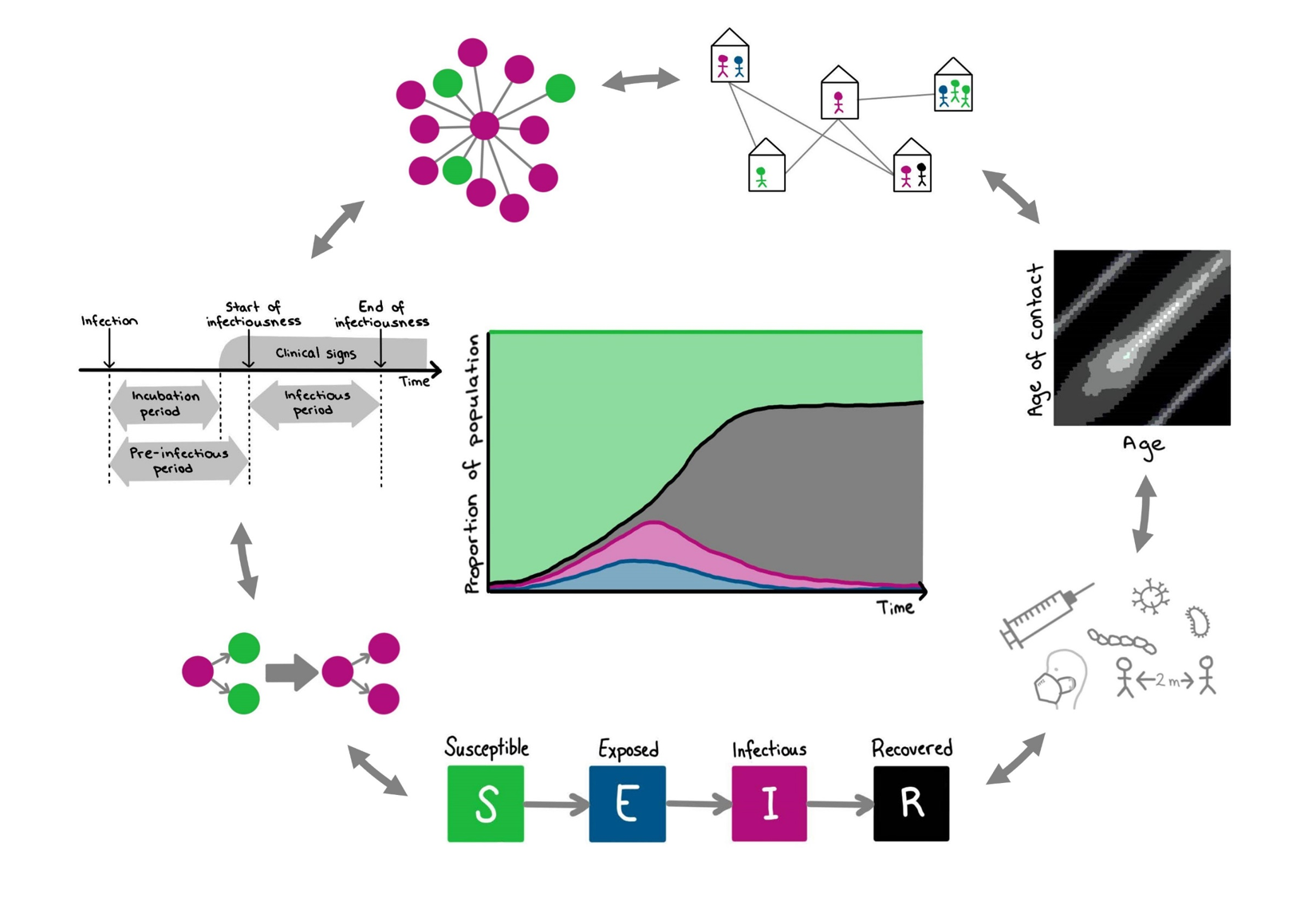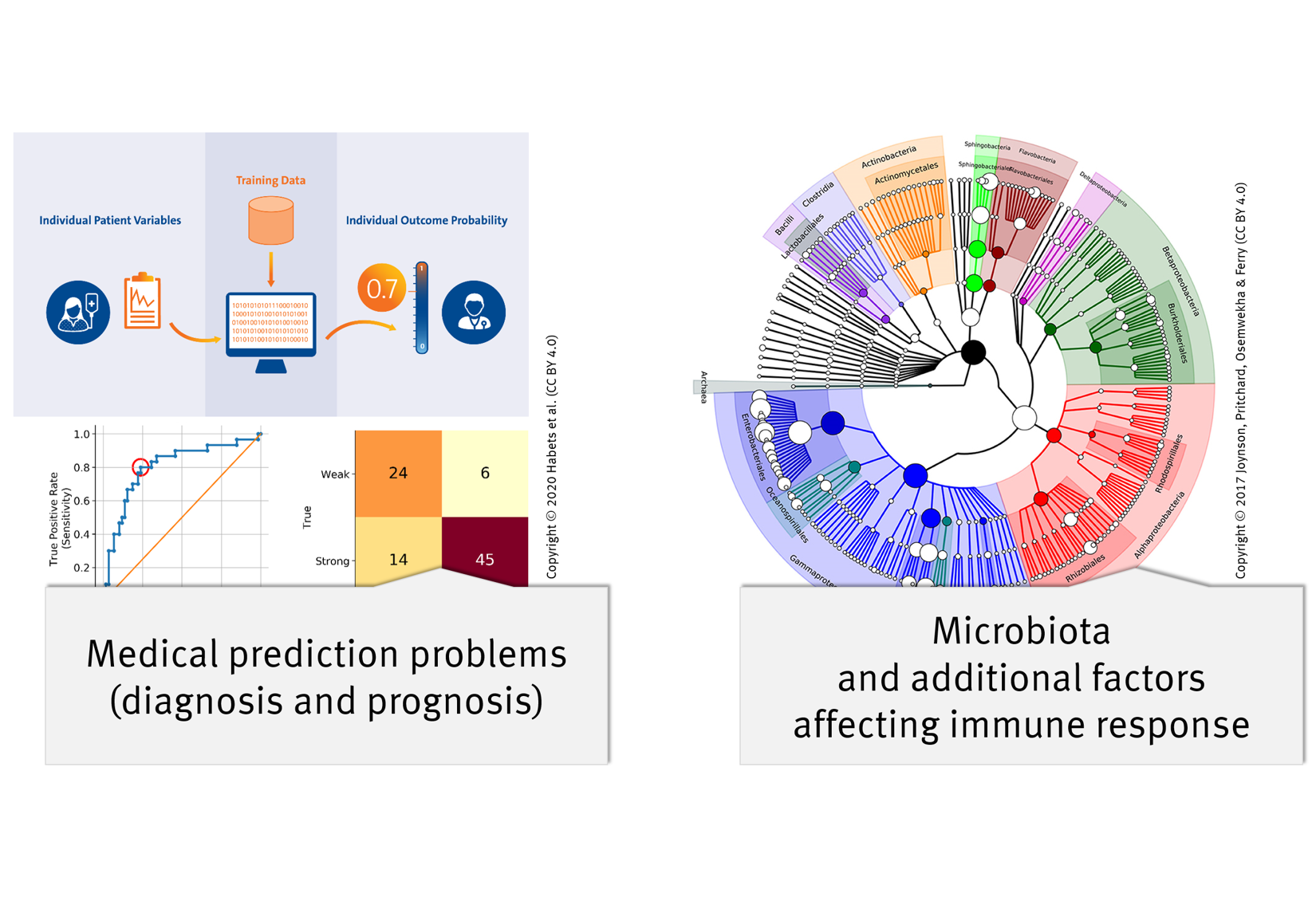Clinical Epidemiology at the
Institute of Epidemiology and Social Medicine
Epidemiology investigates the frequency, spread and determinants of health and disease by studying the population or population groups. It analyzes probable correlations between risk factors, health burdens or living conditions and the occurrence of diseases.
Using modern statistical and epidemiological methods, we generate evidence to evaluate the consequences of contact with infectious agents and/or changes in the immune system on the burden of communicable and non-communicable diseases. This includes the areas of description, understanding pathogenesis, prevention, diagnosis, prognosis, and effects of interventions.

Epidemiology in transition
The 20th Annual Meeting of the German Society for Epidemiology

From the 23rd to the 26th of September, 2025, the 20th Annual Meeting of the German Society for Epidemiology (DGEpi) will take place in Münster. Under the motto ‘Changing the face of epidemiology’, national and international experts will come together to discuss the challenges and opportunities of epidemiology in the coming years and decades.
The DGEpi is the leading professional society for epidemiology in Germany and has established itself as a central forum for epidemiological research since its foundation in 2005. The annual conference is the most important epidemiological event in Germany and offers a wide-ranging scientific programme with keynote lectures, highlight sessions, international panels and interactive discussion formats.
The conference will focus on innovative methodological approaches to current challenges such as demographic change, climate change and rapidly changing geopolitical conditions. The increasing availability of large amounts of data opens up for new opportunities regarding data-driven research designs and methods, particularly in the field of artificial intelligence.
Another important objective of the conference is to strengthen the epidemiological infrastructure through networking. The COVID-19 pandemic has made it clear that successful epidemiological research is only possible through sustainable infrastructures and international cooperation. The conference offers a platform for interdisciplinary exchange and the promotion of international cooperation.
The 20th Annual Meeting of the DGEpi offers a unique opportunity, especially for young researchers, to network and engage in scientific dialogue. The event will make an important contribution to strengthening epidemiological research in Germany and provide impetus for the future in order to ensure its quality and innovative strength in the long term.
You are invited to participate in this important event and present your research results! Please submit your abstract by 14th of April 2025 and take the opportunity to exchange ideas with other experts and present your research. We look forward to welcoming you in Münster and shaping the future of epidemiology together. Information on registration and abstract submission can be found on our website 2025.dgepi.de.
See you in Münster!
Research Areas
Infectious Disease Epidemiology
The infectious disease epidemiology (IDEpi) working group provides key tools for the assessment and response to infectious disease threats in populations. A major focus of the IDEpi group is on improving the parametrization of infectious disease models via the collection and extensive analysis of real-world epidemiological data. This allows us to answer relevant public health questions and provide valuable guidance to decision-makers in various contexts.
Read more about the working group
Epidemiological Methods
We answer clinical research questions by identifying and using the best available methods and study designs. We apply modern statistical concepts in medical prediction problems to improve individual patient outcomes. We investigate a) methods to evaluate diagnostic test accuracy and b) the role of the human microbiota for health and disease.
Read more about the working group
Observational Study Platform
In the Observational Study Platform (OSP), we provide technical and methodological expertise together with data collection, and biosampling infrastructure for all kind of cooperation partners to support the planning, practical conduct, and analysis of observational studies. The different components of the OSP are linked in an openly available centralised platform. In addition to various cooperation projects, two central projects of the medical faculty run in the OSP; the NAKO Health Study and the evaluation of the German Mammography Screening Program (ZEBra-MSP).
Read more about the working group


